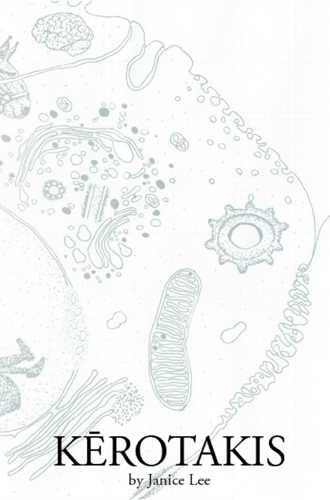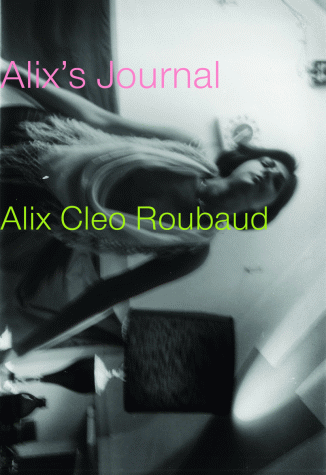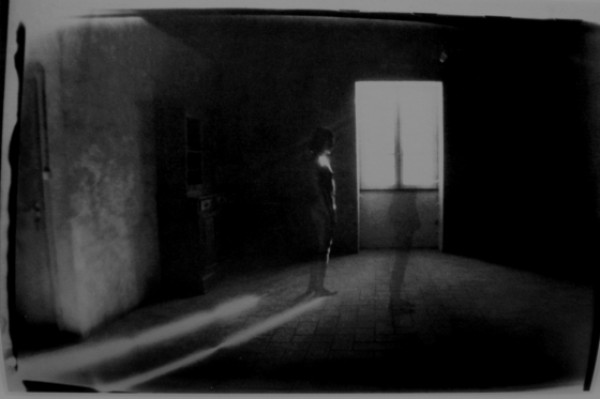if some thing black: On Alix & Jacques Roubaud
Last week I read Dalkey Archive’s somewhat recent release, Alix’s Journal. It was written by Alix Cleo Roubaud, husband of the far-more-visible Jacques Roubaud. Immediately upon finishing Alix’s Journal, I read Jacques’s some thing black. Jacques was a poet, a mathematician, an eventual novelist, and a key player in the OuLiPo. Alix was never sure exactly what she was, other than Jacques wife–which she insisted on her role as with intensity. After Alix died, suddenly, in 1983 of a pulmonary embolism, Jacques began working on some thing black, which took its name from Alix’s series of photographic prints, if some thing black.
Both books, independently and intertextually, are fantastic works. But what becomes most interesting for me, perhaps, is the way in which the book interact. There seems to be a similar relationship between the books (the texts, the written words) as that between Jacques and Alix during their marriage. Alix’s Journal reveals a woman in a primarily male-dominated intellectual world. This is not academia, this is a realm of existence that I doubt still exists in the same way (though to be fair I live in a small town in Northern Illinois)– people, individuals, that care deeply about their own art and the art of others, with no specific ties to a University funding anybody’s motivations. A similar world is exposed in the first volume of Susan Sontag’s journals, and to be fair I can’t help but find it somewhat Utopian.
But this world is not at interest for the time being, because the world of the text that each book carries is one of sadness and desperation.
November 9th, 2010 / 2:38 pm
Two Books I Loved Lately: Janice Lee & Alix Roubaud
KEROTAKIS by Janice Lee [Dog Horn Publishing]
 Since my father’s dementia got worse, reading has been whitish. The words come in and hobble around and yet I’m often not wholly up in brain: what sticks is as if in cycle of him, little licks and bumps of old; and yet more often, where the image hits hardest like an erasing brain would, I get more. KEROTAKIS probably came into me as sheer and cleanly as I could have asked. Like Anne Carson pushed into a machine’s dreamgame, fudging the weird heart of science against the mush of time, this book goes beyond the sprawl of wanting less what and more how from a text object. What comes of color and of cramming or uncramming nameless matter among space. Via this object, while following 4 characters (a cyborg, a past scientist, the traveling brain of the scientist, and the Mother of time) through a series of beautifully spare, Beckettian-on-Burroughs narrations, Lee uploads us with aphorism, monologue, black space, image, footnote, fact (?), dialogue and arsenals of memory-smear that in their beautifully sequenced order open up some new section of the head between the head(s). “It is as impossible to produce a metal out of a plant as to make a tree out of a dog or a baby,” the book says, but what the book has made out of sentences is not not not not wholly freaking and alive.
Since my father’s dementia got worse, reading has been whitish. The words come in and hobble around and yet I’m often not wholly up in brain: what sticks is as if in cycle of him, little licks and bumps of old; and yet more often, where the image hits hardest like an erasing brain would, I get more. KEROTAKIS probably came into me as sheer and cleanly as I could have asked. Like Anne Carson pushed into a machine’s dreamgame, fudging the weird heart of science against the mush of time, this book goes beyond the sprawl of wanting less what and more how from a text object. What comes of color and of cramming or uncramming nameless matter among space. Via this object, while following 4 characters (a cyborg, a past scientist, the traveling brain of the scientist, and the Mother of time) through a series of beautifully spare, Beckettian-on-Burroughs narrations, Lee uploads us with aphorism, monologue, black space, image, footnote, fact (?), dialogue and arsenals of memory-smear that in their beautifully sequenced order open up some new section of the head between the head(s). “It is as impossible to produce a metal out of a plant as to make a tree out of a dog or a baby,” the book says, but what the book has made out of sentences is not not not not wholly freaking and alive.
Alix’s Journal by Alix Cleo Roubaud [Dalkey Archive]
 These are the journals of the photographer, philosopher and young wife of Oulipian Jacques Roubaud, Alix, who died at 31 of a pulmonary embolism. Made up of fragments and ruminations and photographs chronicling the last 4 years of her life, these texts and images are simultaneously mindaching and sublime. In constant stress over her mind, her struggle with aesthetics, her relationships, her body, her sense of impending death, these languages seem to recognize the black oncoming, and the blank spaces in the light there before. “Fear for nothing,but after all so many things are for nothing and so it is. this evening I am not/anything at all but I write to you as I can,before myself to bed,despite the feverish frenzies of the past two nights I like this bed until very soon,until very soon (not sent).” Between the texts the images, often of the home, her gorgeous body, in bed with Jacques, forms, light, fill the space and in the white space of the language with even more air. This is a flesh machine; an apparatus in praise of Wittgenstein and in self hell, curling to make something. I don’t believe I’ll be able to put this on my shelf; it needs to stay loose, around: too passionate an object, a guidebook to some hole.
These are the journals of the photographer, philosopher and young wife of Oulipian Jacques Roubaud, Alix, who died at 31 of a pulmonary embolism. Made up of fragments and ruminations and photographs chronicling the last 4 years of her life, these texts and images are simultaneously mindaching and sublime. In constant stress over her mind, her struggle with aesthetics, her relationships, her body, her sense of impending death, these languages seem to recognize the black oncoming, and the blank spaces in the light there before. “Fear for nothing,but after all so many things are for nothing and so it is. this evening I am not/anything at all but I write to you as I can,before myself to bed,despite the feverish frenzies of the past two nights I like this bed until very soon,until very soon (not sent).” Between the texts the images, often of the home, her gorgeous body, in bed with Jacques, forms, light, fill the space and in the white space of the language with even more air. This is a flesh machine; an apparatus in praise of Wittgenstein and in self hell, curling to make something. I don’t believe I’ll be able to put this on my shelf; it needs to stay loose, around: too passionate an object, a guidebook to some hole.
June 15th, 2010 / 11:40 am

